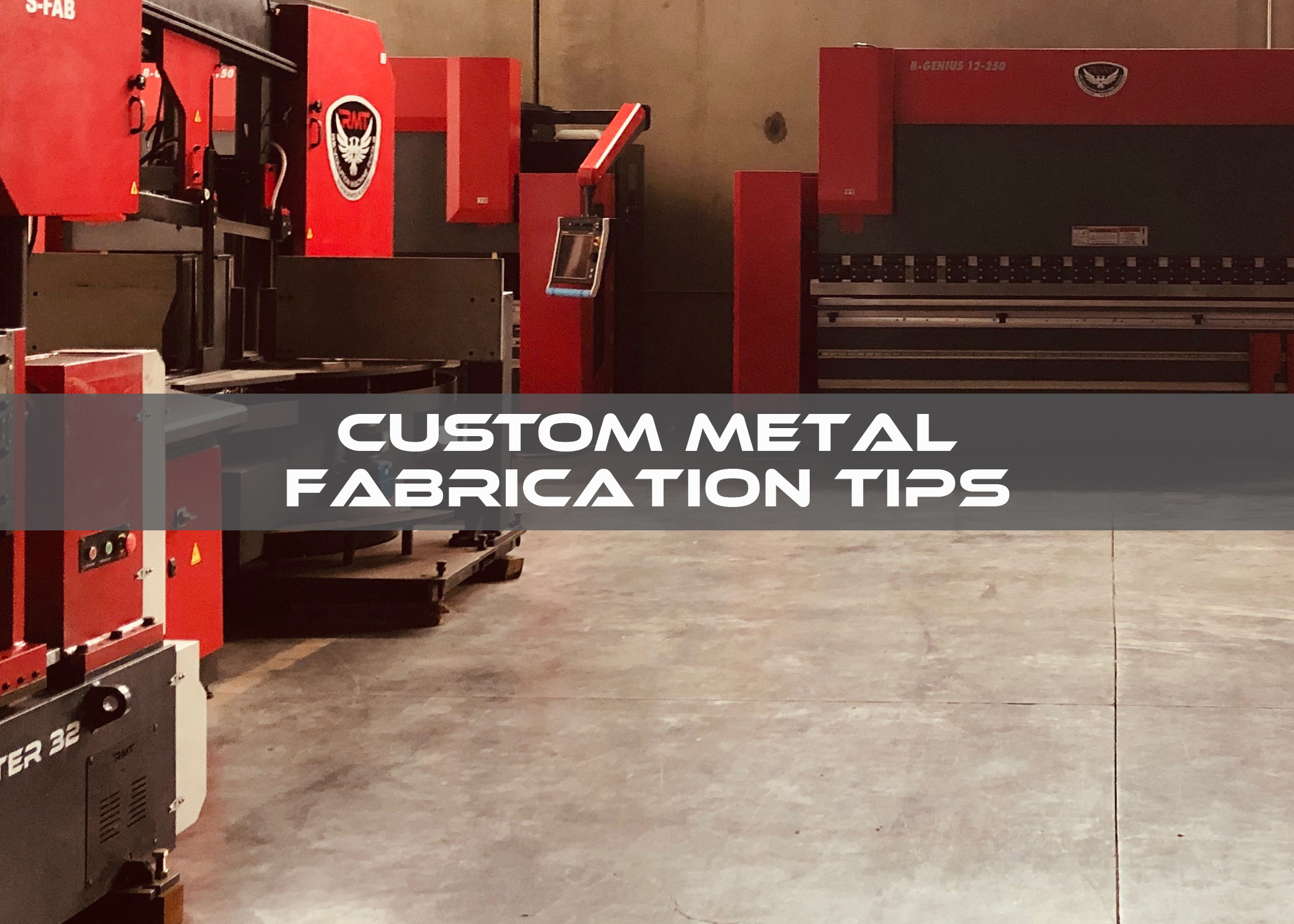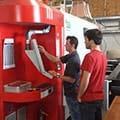Metal fabrication is a complex and rewarding field that requires precision, creativity, and
expertise. Whether you’re a seasoned professional or just starting out, honing your skills
and following best practices can significantly improve the quality of your work.
When it comes to doing custom work for a client, even greater care must be taken.
Repeating a standard job comes as second nature for an experienced metalworker, but
launching into a custom metal fabrication project can challenge even the most highly
skilled veterans in the industry.
The following tips can aid a fabricator in avoiding some of the pitfalls of custom fab jobs.
Clarify Project Requirements Thoroughly. A common mistake in metal fabrication is
failing to fully understand the client’s requirements. Miscommunication can lead to
design errors, incorrect material choices, and project delays. Always take the time to
clarify specifications, material preferences, and functional expectations through detailed
discussions and documentation.
Have Detailed Plans and Blueprints. Starting fabrication without a detailed plan or
blueprint often leads to mistakes and inefficiencies. Using computer-aided design (CAD)
software to create precise models and layouts can help reduce the likelihood of costly
errors during fabrication.
Stay Accurate in Measurements and Cuts. Precision is crucial, and inaccurate
measurements can lead to material wastage and rework. Always measure twice and cut
once. Utilize accurate measuring tools such as calipers, micrometers, and laser devices
to avoid discrepancies.
Be Patient and Pay Attention to Detail. Rushing through projects and ignoring details
can result in subpar work. Taking the time to execute each step with precision and
patience ensures high-quality results.
Choose the Right Materials. Selecting the wrong type of metal can result in structural
weaknesses, corrosion issues, or excessive costs. Consider factors such as strength,
corrosion resistance, weight, and cost when choosing materials. Avoid mistakes by
consulting with material suppliers and engineers when in doubt.
Maintain Good Supplier Relationships. Unreliable suppliers can cause delays and
compromise material quality. Building strong relationships with suppliers ensures access
to high-quality materials and better pricing, helping you avoid last-minute issues.
Use Proper Tools and Equipment. Poor-quality or unsuitable tools can lead to
inaccurate cuts, weak welds, and uneven finishes. Investing in reliable cutting, welding, and finishing tools is essential. Ensure you have the right equipment for the job, such
as:
Lasers or plasma cutters for precise cutting
CNC machines for accuracy
Proper welding equipment (MIG, TIG, Stick)
Quality grinders and polishers
Have Efficient Workflow Management. A disorganized workspace and poor planning
can lead to unnecessary delays and mistakes. Streamline your workflow by organizing
tools, materials, and processes to maintain efficiency without compromising quality.
Keep Detailed Records. Not maintaining detailed records of project specifications,
materials used, and production processes can lead to inconsistencies in future work.
Keeping organized records helps ensure repeatability and efficiency.
Don’t Neglect Customer Service. Overlooking customer satisfaction can harm your
reputation and future business. Providing clear communication, regular updates, and
prompt responses to concerns is key to building trust and repeat business.
Observe Proper Welding Techniques. Poor welding techniques can result in weak
joints, warping, and structural failures. Understanding the differences between MIG,
TIG, and Stick welding and knowing when to use each technique is crucial to avoid such
mistakes.
Don’t Overlook Safety Protocols. Ignoring safety measures can result in serious
injuries and project disruptions. Common mistakes include neglecting personal
protective equipment (PPE) and working in unsafe environments. Always wear gloves,
safety glasses, welding helmets, and protective clothing, and ensure proper ventilation.
Be Aware of Environmental Considerations. Disregarding sustainable practices can
lead to regulatory issues and increased waste. Implementing recycling programs and
using eco-friendly coatings can reduce environmental impact and align with industry
standards.
Take Time During the Finishing Process. Neglecting the finishing stage can diminish
the durability and aesthetics of the final product. Mistakes such as inadequate sanding,
polishing, or applying coatings incorrectly can lead to corrosion and defects. Take the
time to properly finish each piece.
Don’t Skip Quality Inspections. Many fabricators make the mistake of not inspecting
their work thoroughly. Regular quality checks ensure that the final product meets the
required specifications and standards, preventing costly rework.
Develop Technical Skills. One of the biggest mistakes fabricators make is not
continually improving their technical skills. Custom metal fabrication requires a combination of cutting, welding, bending, and finishing expertise. Regular training and
practice help avoid costly errors and enhance craftsmanship.
Maintain Your Equipment. Neglecting routine maintenance of tools and equipment can
lead to unexpected breakdowns and costly downtime. Regular inspections and servicing
can prolong the lifespan and efficiency of your machinery.
Learn Proper Problem-Solving Approaches. Every project comes with challenges,
and poor problem-solving skills can lead to significant setbacks. Developing critical
thinking and troubleshooting abilities helps to resolve issues efficiently.
Don’t Ignore Industry Trends and Innovations. Failing to keep up with industry trends
and technological advancements can result in outdated practices and lost business
opportunities. Stay informed by attending workshops, trade shows, and reading industry
publications.
Welcome Customization Challenges. Some fabricators hesitate to embrace
customization due to fear of complexity. However, avoiding innovative solutions can limit
opportunities. Take calculated risks, experiment with new designs, and explore unique
techniques to stay competitive.
By being mindful of these common tips and adopting proactive strategies, custom metal
fabricators can enhance their craftsmanship, increase efficiency, and deliver high-quality
products that meet or exceed client expectations.







